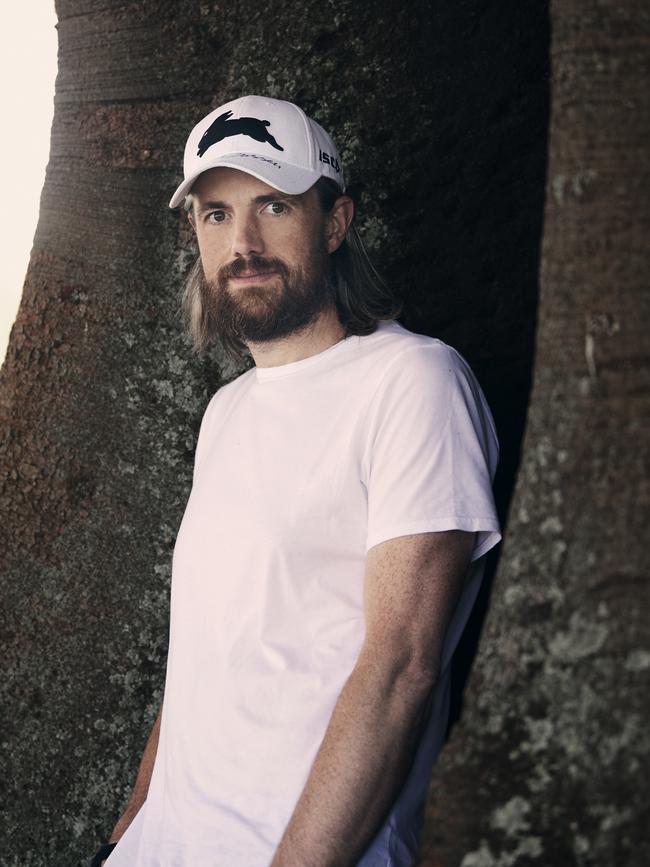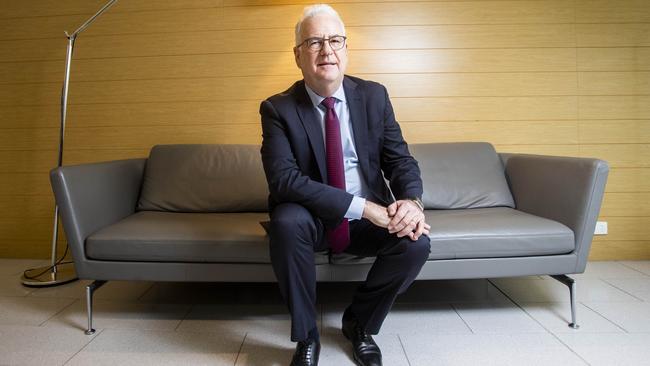
A sweetened multi-billion dollar bid was quietly put to AGL’s board over the weekend, two weeks after the initial joint offer was tabled, and the rejection was just as swift as the first. This prompted the would-be suitors to walk.
As The Australian’s Perry Williams revealed on Sunday night, tech billionaire Mike Cannon-Brookes and his Canadian backer Brookfield increased the offer to $8.25 a share, or $8.1bn including debt.
This was 10 per cent higher than the original $7.50 a share offer, but it wasn’t enough to sway the AGL board to talk after it considered the new price in a weekend phone hook-up. AGL’s shares on Monday dipped 13c to $7.30.
The electricity giant will now push ahead with its existing plans to split the business, which will see its carbon emitting coal-fired power plants spun out of its electricity retailing and renewables business.
AGL’s chief executive Graeme Hunt says even the latest offer remained “well below the fair value” of the company on a change control basis, and was below the expected value from the demerger.
“And therefore, it was not in the best interest of the shareholders,” Hunt said in an interview.
A change of control premium would involve a figure “very, very much north of the number that they’re talking about,” Hunt said, but declined to be specific.
AGL’s board “will always review” any offer or proposal that comes forward and review it in the context of what’s in the best interests of shareholders, he added.
However, bidders that are serious in their intent on multi-billion dollar targets often sit on the sidelines for months, sometimes over years, seeking an entry point with boards and the shareholder base.
And this time the looming split provides a near-term catalyst that could play into the hands of the Brookfield camp.
The Brookfield-Grok consortium looking to take private & transform AGL is putting our pens down - with great sadness.
— Mike Cannon-Brookes 👨ðŸ¼â€ðŸ’»ðŸ§¢ðŸ‡¦ðŸ‡º (@mcannonbrookes) March 6, 2022
This weekend, the board rejected our raised offer of $8.25. 46% more than the price of $5.55 about 90 days ago 🧵 (1/3) pic.twitter.com/c5KYwGozDo
The split proposal needs to be put to AGL’s shareholders by the end of June and it has so far only received lukewarm support from investors. A failure of the plan could lead to more management and boardroom instability and an opportunity to pounce.
At the same time, the spun out power generation business Accel Energy may be attractive enough as a smaller acquisition for the bidders. A scheme booklet detailing AGL’s business case for the split will be sent to shareholders in May.
From the AGL perspective, the sweetened bid represented $5.14bn of equity and has been lobbed while the share price remains near two-decade lows. It also represents a discount to the $6.12bn in net assets sitting on AGL’s balance sheet. As a rough guide it gives any prospective bidder an immediate $1bn windfall for just picking up the keys.
It also comes as electricity prices are turning up sharply, particularly as inputs – coal and gas – are soaring amid the Russian invasion of Ukraine.
Driving the Cannon-Brookes and Brookfield offer was a plan to buy out AGL to bring about the rapid end of coal-fired power and essentially turning Australia’s biggest carbon emitter green.
They planned a scheme to replace seven gigawatts of coal capacity through a build-out of at least 8GW of clean energy and storage and AGL’s giant Bayswater coal plant in NSW and Loy Yang A station in Victoria would close by 2030 under the bid.
AGL’s board and management remains deeply sceptical toward this given what they see as an unrealistic time frame to make the transition and a lack of planning detail.

Hunt maintains the initial bid lacked “credibility”. He argued that shutting down AGL’s main coal-fired power plants in the next decade didn’t take into account the heavy investment spend needed to match baseload power with renewable energy. In addition, substantial investment in getting the electricity grid ready for such a transition is also needed. Hunt has previously said such a plan would require a $30bn investment and that’s even before making adaptations for the real world. This would be a stretch even for the Cannon-Brookes and Brookfield partners, who claim they have firepower of up to $20bn to invest.
Hunt says that not only shareholders but AGL’s board also needs to weigh up the implications for AGL’s customers and communities under any takeover plan.
With little engagement from AGL and shareholder groundswell not materialising, Cannon-Brookes and Brookfield called time on the short-lived venture. For now.
“The Brookfield-Grok consortium looking to take private & transform AGL is putting our pens down – with great sadness,” Mike Cannon-Brookes tweeted on Sunday night.
But Brookfield is making a tactical retreat. From the time it lobbed late last month, the usually low-profile Brookfield, which was set to foot the bill for the majority of the bid, came under intense scrutiny both in Australia and overseas.
It simply didn’t bargain just how much celebrity power Cannon-Brookes brought to the table.
Worrying for Brookfield, the bid also faced the threat of political heat from the Morrison government and ultimately intervention by Treasurer Josh Frydenberg to derail any acquisition under foreign investment powers.

While Atlassian co-founder Cannon-Brookes knows the rough and tumble of Australian politics and is prepared to roll through it, pushing the wrong political buttons could emerge as a risk for the Canadian funds giant that has around $US50bn ($67.4bn) of investments here and very likely planning more.
Some of these investments are in highly sensitive assets, including hospital operator Healthscope. It also has a stake in the Patrick container ports business and more recently it acquired the AusNet electricity transmission distribution business in Victoria.
However, Brookfield, having done intensive homework on AGL, is unlikely to disappear completely. It knows the market has long undervalued AGL, which has more than 4 million customers and its coal plants will spin out substantial cash for at least the next decade.
Brookfield managing partner Stewart Upson said in a recent interview with The Australian that his team was looking at AGL during the course of last year.
Upson said that had the original bid moved ahead, it would hold AGL for a period of 10-plus years before eyeing an eventual exit possibly through a stockmarket listing.
“During that time we would complete the fulsome transition of AGL and then at the end, once AGL is a fully, green low emissions company we will obviously have to make an assessment from a Brookfield point of view,” Upson said.
Brookfield remains a deeply serious bidder but if it is interested in AGL it will need to find another way. Fundamentally this means controlling every part of the bidding process and the political fallout under its own steam. This, and more cash, will find a more receptive AGL board.
johnstone@theaustralian.com.au






While AGL’s fast track to a renewables revolution appeared to be over before it even got off the ground, Mike Cannon-Brookes and his Canadian partner Brookfield will still cast a long shadow over the power generator.